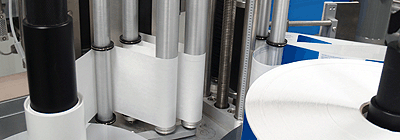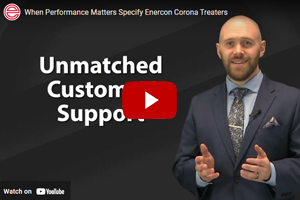Eco Fiction
- Published: September 01, 2009, By By Susan Stansbury, Converting Influence
In industry, some of us are getting frustrated by the lofty pronouncements by marketers promoting their “earth-friendly” products. Worse yet, consumers increasingly are confused and even skeptical about those claims.
The claims range from “green,” to “eco-friendly,” to “bio-based,” and so much more. Greenwashing presents obstacles for those making true efforts.
Often when product labels use terms like “biodegradable,” there's an especially compelling argument for a good green purchase. Part of the consumer's reasoning is that terms such as biodegradable and compostable have a technical ring to them. They think: “Those people must have met a scientific standard when they use these words.”

Many of us do not pause to think about what all the “eco” terms mean. Do they have a real impact? After all, do our purchases of those green products improve the environment?
At a recent conference on sustainable products, a brand-leading company described its target consumers in this way:
- upscale buyers
- trendy
- true green consumers
The question for suppliers is: How do we represent “true green” in ways that are not misleading or lacking in impact and that also resonate with buyers? For consumers that are not in the “upscale” category, we have to ask: Can we supply meaningfully green products that are competitively priced?
Landfill Legends
If we would only stop to think about biodegradability, we would remember that even a phone book covered over in a landfill lasts many decades without biodegrading. Nothing actually will happen for a long time in most of today's landfills.
It doesn't matter which definition of biodegradability you reference — whether the product or material has to break down in 90 days or 9 months, in defined conditions of air, moisture, and light, and be (as defined by the Environmental Protection Agency) “capable of decomposing under natural conditions” — there are very few situations in which materials are put in piles out in the open air and mixed or turned periodically.
In fact, as we go to press, the Federal Trade Commission (FTC) is raising questions about so-called biodegradable products saying, for example, about Kmart's American Fare disposable plate, “Evidence does not exist that it will disappear quickly in a landfill condition.”
Page 2 of 2
The bottom line is that eco-deliverables are sorely lacking. While it doesn't hurt for a company to be ahead of its time by offering biodegradable products, there are many other things companies can do to make a real difference right now. Some of the comparisons include:
- Design Better Products | Rather than trying to remove waste and recycle extra materials and packaging on the back end, many companies are working actively on upfront design for improved product-to-package ratios and increased bulk packaging, even removing some intermediate packaging elements.
- Source Reduction | This is potentially more impactful than being recyclable. If product designers and converters can cut back on actual waste, there is less need to recycle or compost. Of course, having products made with reduced waste, plus being recyclable, covers multiple bases.
- Analysis of the Supply Chain |Reduce transportation and associated fuel usage instead of doing business in traditional ways. Regional alliances are taking some of the bloom off cross-continent and overseas sourcing. For example, is bamboo the answer in heartland USA converting when it has to be transported long distances? Or are nearby resources, such as those monitored by the Forest Stewardship Council, a better approach?
Converters are beginning to break through with their roll-up-the-sleeves stories of actual eco-results. They are busy making green progress that also improves efficiencies. No fiction needed.
“Being lean and assuring minimal wastestreams is very critical to our business,” says Bob Saari of Contract Converting in Greenville, WI. “As part of our services, we often slit and rewind our customers' materials. We have had many successful projects and programs with them because of our attention to the overall reduction of waste, along with our other efficiency efforts.”
According to the FTC (www.ftc.gov/green), misleading claims can result in consequences, including corrective advertising, mandatory disclosures in future ads, or labeling — for starters. FTC staff attorney Janice Podoll Frankle, speaking at a recent PIRA Clean Green Conference, said, “Substantiation must be competent with reliable evidence, including testing, analysis, and research.” It's a warning about the kind of eco-fiction that ultimately leads nowhere useful.
Susan Stansbury has been in strategic marketing for the paper, nonwovens, and converting industries for more than 25 years. She is a founder of the Wisconsin-based Converting Influence group of 100 converters and associated member companies. She leads a hands-on sustainability effort as a key initiative to assist the group of manufacturers. Contact her at susan@convertinginfluence.com; 920-265-6407; www.convertinginfluence.com.
Greening Your Business
Paper, film, and foil converters are in the trenches of manufacturing, not in the fashionable, promotional end where marketers put out their green imagery. However, converters can step up to work more closely with marketers and offer meaningful examples, which can be taken further into the consumer arena. First, however, they need to find a path to assessing, implementing, and communicating their efforts. They can take methodology from their past efforts at quality improvement and strategy development.
Eco-planning includes the following steps:
- Develop your vision for sustainable efforts that fit the specific converting business.
- Assess a particular situation to choose steps, corrective actions, and paths that fit the business.
- Determine factors for evaluation when planning for green initiatives.
- Work with suppliers, customers, and others to maximize input and options.
- Choose definitions, resources, and authorities as a framework for your green programming.
By tailoring everything to their particular businesses, converters can deliver authentic results that make sense to their customers and communities.








